
Almost 18 months after the introduction of the first-generation wireless Bluetooth earbuds, the second-generation Nothing Ear (2) have been officially unveiled.
Details were shared on the earbuds during an official live-streamed announcement hosted by company founder Carl Pei. Like the Nothing Ear (1), the Ear (2) retain the transparent design and finish that has been one of the core differentiators for the earbuds over many similar products. Each earbud has received some minor adjustments with microphones and vents moving, but visually, very little has changed here.
Ear (2) feature ANC that is capable of 40dB of noise reduction and matches the original Nothing Ear (1). You can tune this via the three available modes: Light, Maximum, and Transparency. All three modes are said to offer improvements and can be controlled via the updated Nothing X app. Within the application, you can also adjust and customize the new squeeze controls for each earbud stem.
By default, a single press will play/pause or answer/hand-up calls, a double press skips forward or rejects calls, and a triple press skips back. Pressing and holding either earbud will switch between ANC and Transparency mode.
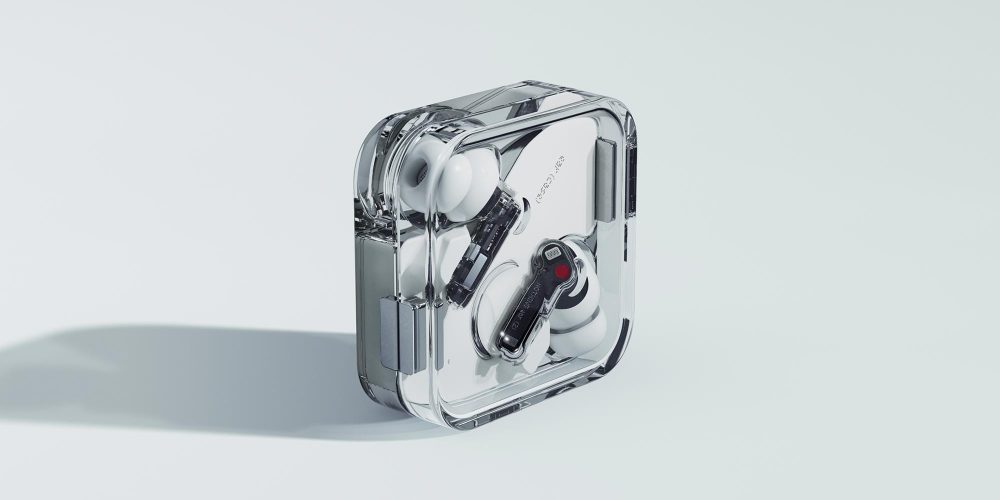
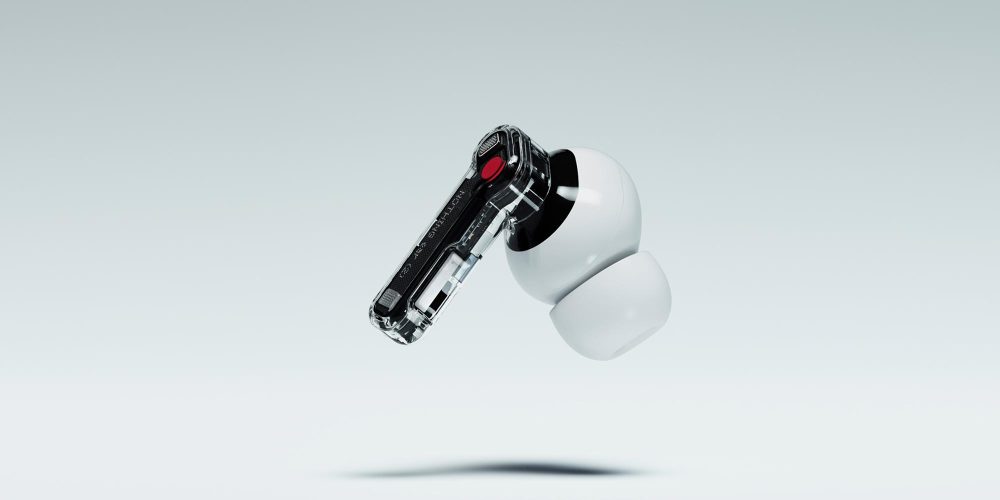
While the sound profile of the original earbuds was acceptable, Nothing has spent time making improvements to the audio and connection capabilities for the firm’s fourth hardware release to date. This is achieved with a new “Personal Sound Profile” mode that uses an ear tip fit test to determine the audio seal and adjusts the profile accordingly.
11.6mm dynamic audio drivers and an increased internal cavity help improve the richness of the listening experience. LHDC 5.0 codec technology ensures improved audio with each earbud capable of transmitting frequencies up to 24 bit/192 kHz at speeds of up to 1 Mbps.
Dual Connection mode allows you to connect the Nothing Ear (2) to multiple devices simultaneously including a smartphone and a laptop or tablet. When audio playback is detected, the Ear (2) will pipe in whatever is playing from the appropriate device.
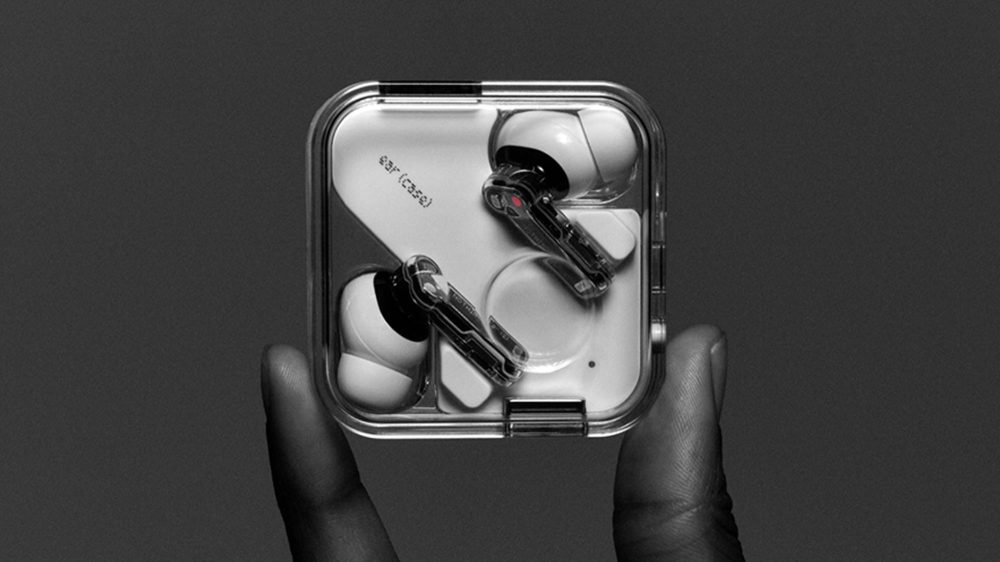
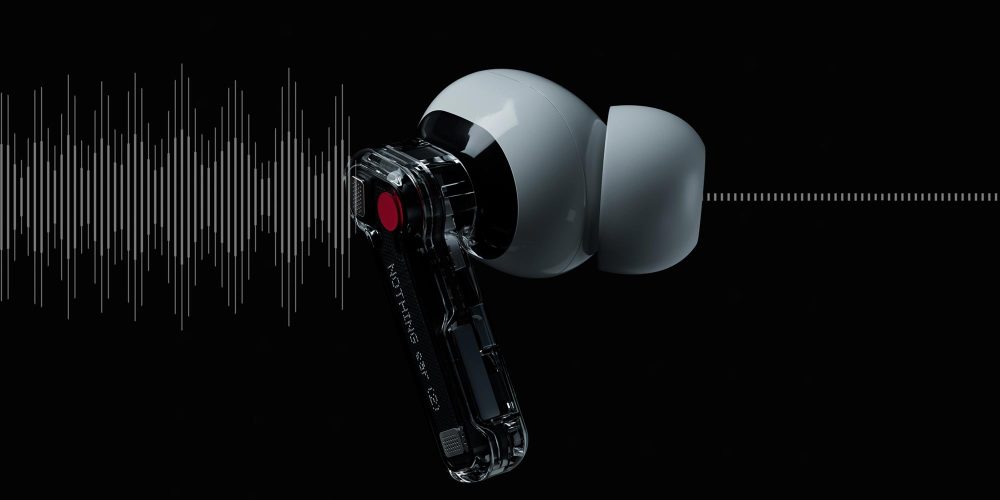
Bluetooth 5.3 connectivity is present and should improve upon the sometimes shaky connections that the Ear (1) suffered during our initial testing period back in 2021. The Nothing Ear (2) also support Google Fast Pair for quick connections with your Android devices alongside Microsoft Swift Pair on Windows machines. A low-latency “Low Lag Mode” will activate automatically when using the Game Mode on Phone (1) smartphones.
Each earbud is IP54 rated against water and dust ingress while the charging case is IP55. The clear case is significantly smaller this time at 55.5 x 55.5 x 22 mm and weighs 51.9g. Each earbud is just 4.5g.
Nothing states that the Ear (2) earbuds’ 33mAh batteries can last up to four hours with ANC active or six hours and 20 minutes when deactivated. The charging case provides an extra 485mAh, which equates to a further 22.5 hours when ANC is used or 36 hours when not active. Fast charging each earbud for 10 minutes provides eight hours of listening with ANC deactivated. The case supports Qi wireless charging at 2.5W and wired charging via USB-C at 10W.
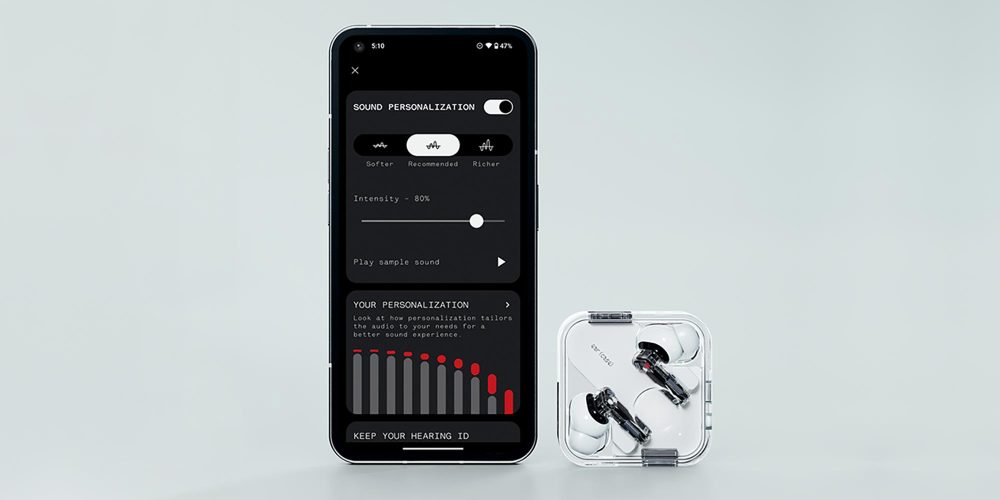
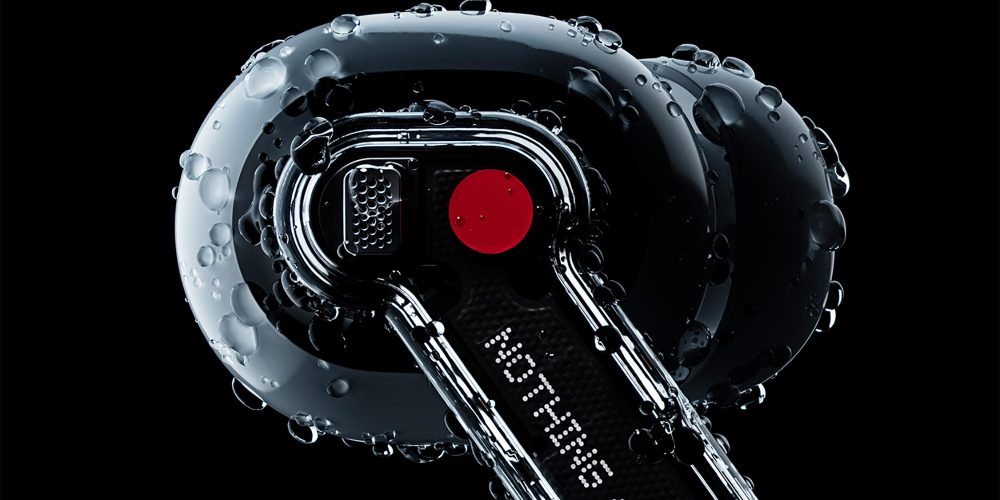
The Nothing Ear (2) earbuds are priced at $149, £129, or €149 and are available for pre-order direct from nothing.tech, Nothing Store Soho in London, and selected Kith stores in the US, France, and Japan. General sale begins March 28 at selected online and offline retailers including StockX for US-based buyers.
The London-based startup also confirmed that the Ear (1) and Ear (stick) have sold over 1,000,000 units worldwide since launch. Nothing is set to launch the Phone (2) later this year with the device confirmed to use a Qualcomm Snapdragon 8-series processor — believed to be the Snapdragon 8+ Gen 1 and likely to ship with Nothing OS 1.5 atop Android 13.
More on Nothing:
- Newest Nothing Phone (1) Update brings Ear (2) support and improved memory usage
- Carl Pei’s Nothing is working on a wacky-looking speaker
- Nothing Ear (2) full specs surface as more official-looking renders leak [Gallery]
Author: Damien Wilde
Source: 9TO5Google



